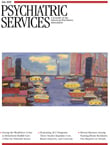New voluntary and regulatory measures can strengthen protections against financial conflicts of interest in medicine, which threaten the integrity of scientific investigations and erode public trust in physicians' professional judgment, according to a new report by the Institute of Medicine (IOM). Such measures, if implemented successfully, will allow "productive relationships between the medical community and industry that contribute to improved medical knowledge and care," according to Bernard Lo, M.D., chair of the IOM committee that wrote the 338-page report.
The report's release comes at a time when news stories, legal settlements, and institutional announcements have documented a range of disturbing situations, including failure to disclose substantial payments and gifts from drug companies, suppression of negative findings, manuscripts ghostwritten by industry-paid writers, and heavy industry support for accredited continuing medical education programs. The committee calls on all academic medical centers, journals, professional societies, and other entities engaged in research, education, clinical care, and development of practice guidelines to strengthen their policies. Because the committee noted substantial variation in such policies and shortcomings in adherence to them among researchers and clinicians, it recommends standardization of the disclosure format and of categories of relationships to help institutions assess the risk that a relationship poses and to ease the burden for individuals who must report information to organizations with different policies.
Congress should authorize establishment of a public Web site on which pharmaceutical, biotechnology, and device firms are required to report payments they make to individuals, academic institutions, professional societies, patient advocacy groups, and others. A public record could serve as a deterrent to inappropriate relationships and undue industry influence and provide institutions with a way to verify the accuracy of information that individuals have disclosed to them, the report notes.
Researchers, medical school faculty, and private-practice physicians should forgo gifts of any amount from medical companies and decline to publish or present material ghostwritten or otherwise controlled by industry, the report recommends. Consulting arrangements should be confined to legitimate expert services spelled out in formal contracts and paid for at a fair market rate. Physicians should limit their interactions with sales representatives and use free samples only for patients who cannot afford medications. Entities that accredit medical schools should consider setting standards for the adoption of conflict of interest policies and publicly list the institutions that follow those standards. Similarly, the World Association of Medical Editors could publicize which journals have adopted policies consistent with its conflict of interest statements. The report also calls for more research on the impact of conflict of interest policies and on the extent to which conflicts result in biased decision making or harm.
The study was sponsored by the National Institutes of Health, the Robert Wood Johnson Foundation, the Greenwall Foundation, the ABIM Foundation, the Burroughs Wellcome Fund, and the Josiah Macy Jr. Foundation.
Conflicts of Interest in Medical Research, Education, and Practice can be downloaded or purchased from the National Academies Press Web site at
www.nap.edu .

